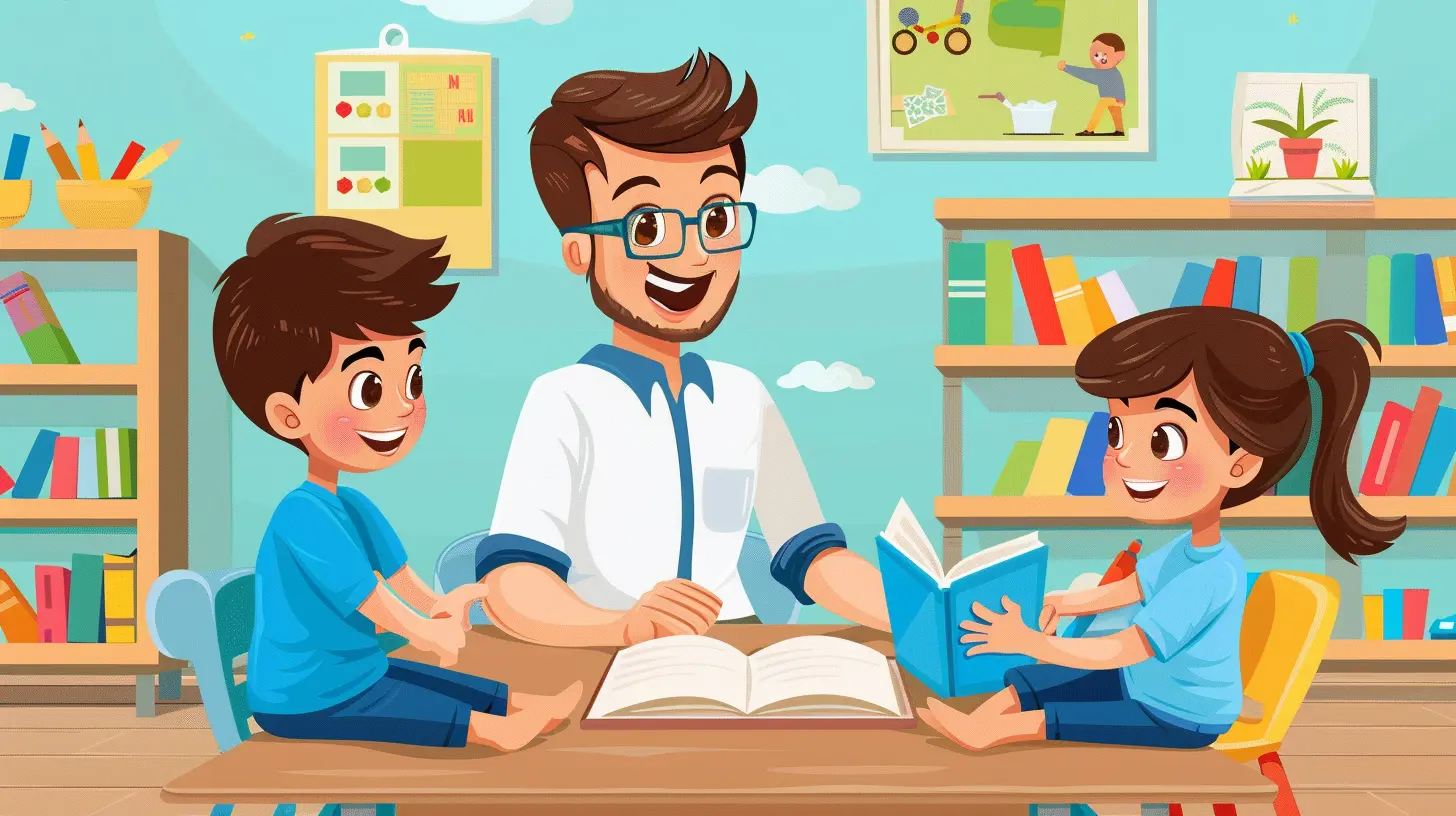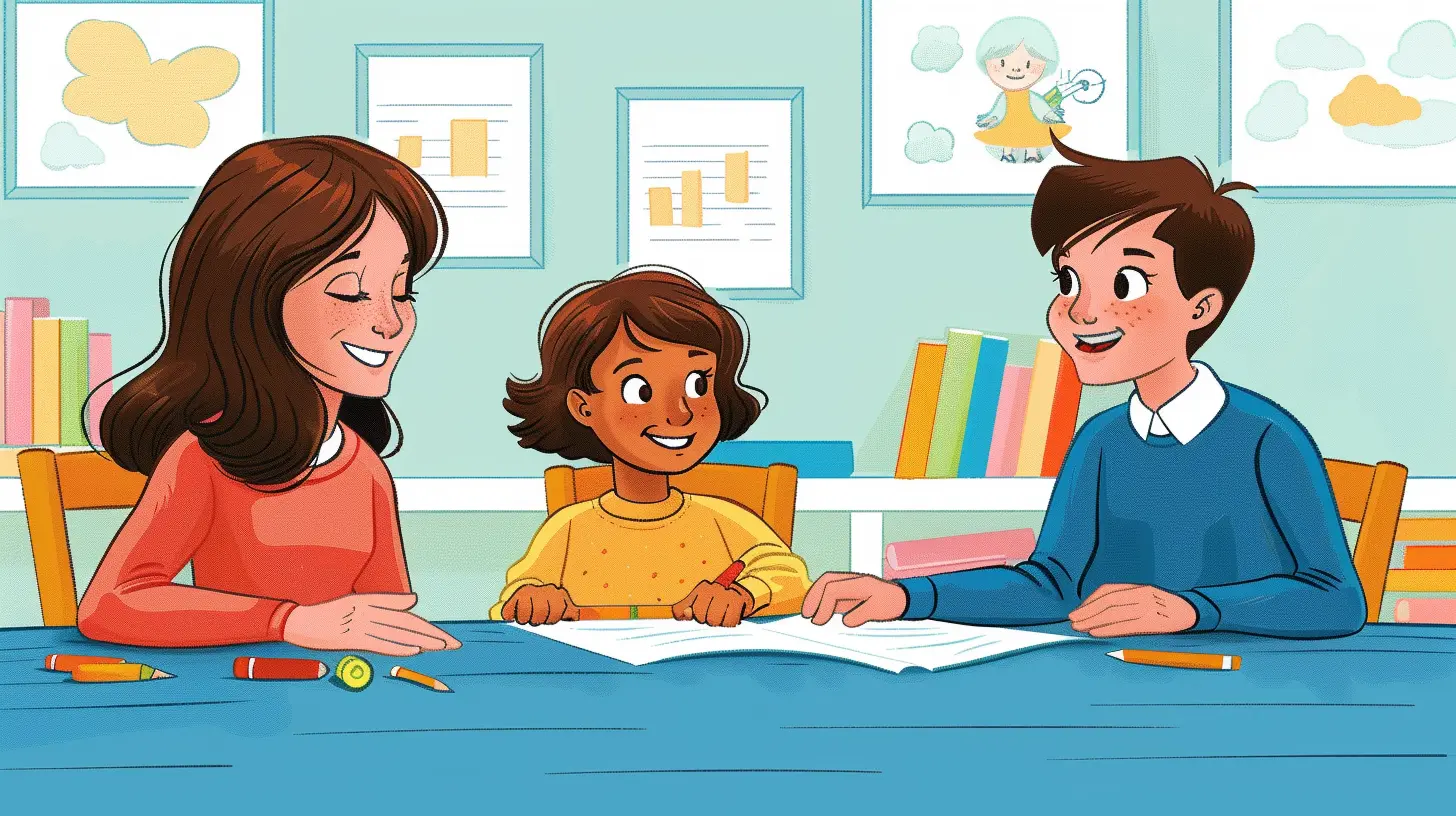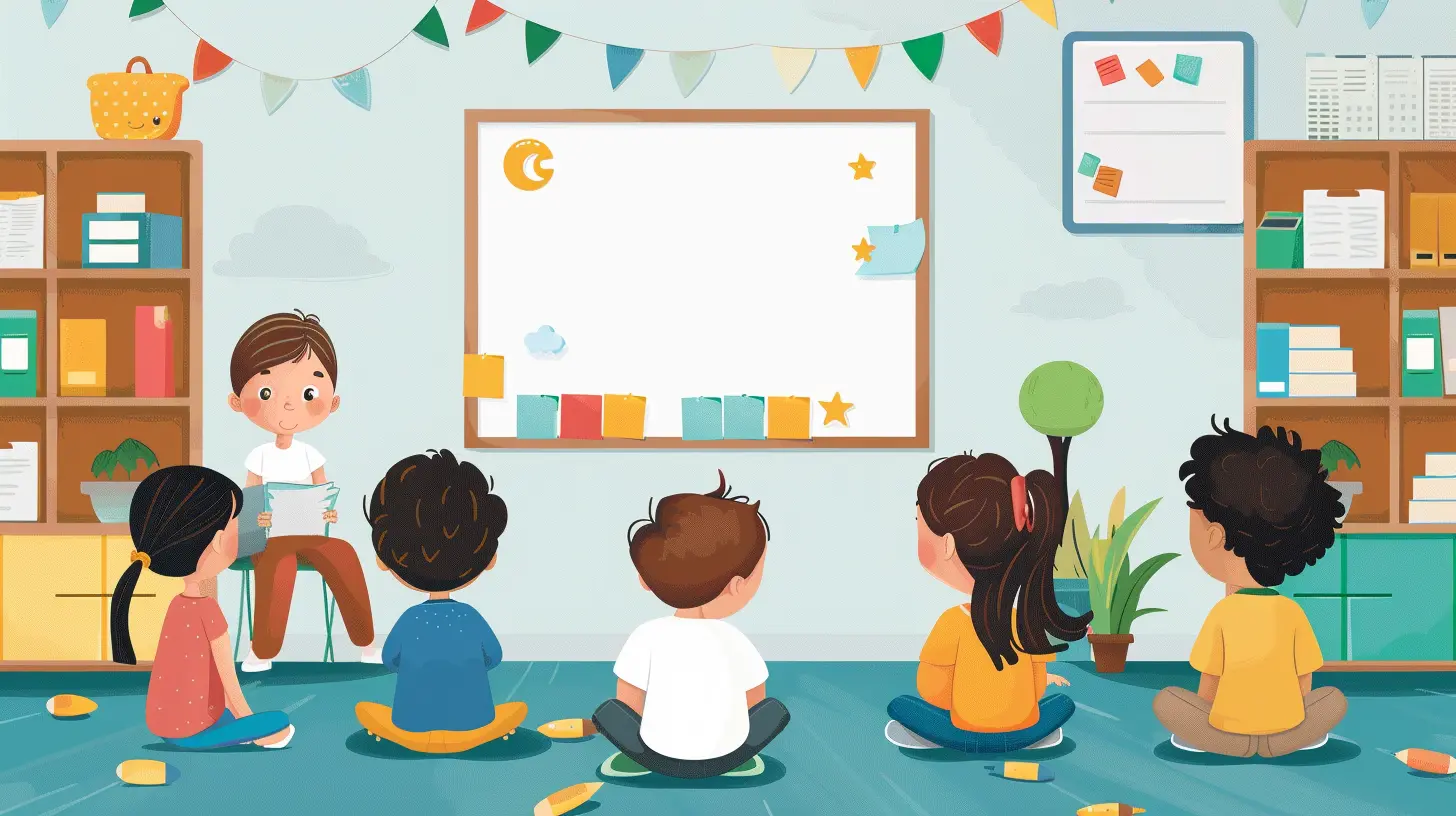Effective Parent-Teacher Communication Strategies
14 May 2025
In the ever-evolving world of education, strong communication between parents and teachers isn't just helpful—it's essential. Imagine trying to build a bridge without sturdy pillars; that’s what education looks like when parents and teachers don’t communicate effectively.
When parents and teachers work together, students thrive. They get the best of both worlds: the structured learning environment of school and the supportive guidance of home. But for this collaboration to work, there needs to be a solid strategy. In this article, we'll dive deep into practical and effective parent-teacher communication strategies that foster understanding, trust, and teamwork. 
Why Parent-Teacher Communication Matters
Before we unpack strategies, let’s address the obvious—why does communication between parents and teachers matter so much?1. Boosts Student Success – When parents and teachers are on the same page, students receive consistent messages and support, leading to better academic and personal development.
2. Prevents Issues from Escalating – Addressing minor concerns early can prevent major problems down the road.
3. Encourages a Positive Learning Environment – A student feels more confident and secure when they know that their teachers and parents are in sync.
4. Builds Trust – Open lines of communication establish trust, making it easier to collaborate when challenges arise.
Now that we understand the importance of communication, let’s dive into some effective strategies. 
1. Establish Open and Honest Communication
Honesty is the foundation of any strong relationship, and it’s no different when it comes to parents and teachers. Both parties should feel comfortable discussing academic performance, behavioral issues, and special needs without fear of judgment.- For teachers: Be transparent about a child’s progress, including both strengths and areas for improvement.
- For parents: Share any relevant information about your child’s home life that might impact their school experience.
Openness fosters trust and ensures that no one is left in the dark when issues arise. 
2. Use Multiple Communication Channels
Not all parents prefer the same method of communication—some like face-to-face meetings, while others appreciate emails or phone calls. Using a mix of channels can help bridge the gap.Effective Communication Channels:
- Email & Newsletters – Great for updates on upcoming events and student progress.- Parent-Teacher Meetings – Essential for in-depth discussions.
- Phone Calls – Useful for urgent concerns or immediate feedback.
- Classroom Apps (Like Remind or ClassDojo) – Provides real-time updates, assignment reminders, and quick check-ins.
The key is flexibility. Offering different options ensures that every parent has access to the information they need. 
3. Schedule Regular Check-Ins
Waiting until parent-teacher conferences to provide feedback isn’t enough. Regular check-ins create a consistent dialogue and help address concerns before they snowball into bigger issues.How to Implement Regular Check-Ins:
- Monthly Email Updates – A simple progress update keeps parents informed.- Biweekly Phone Calls for Struggling Students – Helps keep parents in the loop.
- Quarterly Parent Newsletters – Highlights classroom activities, achievements, and upcoming events.
By keeping communication consistent, both parents and teachers stay aligned on a student’s progress.
4. Listen and Show Empathy
Communication isn’t just about talking—it’s about listening. Parents and teachers must actively listen to each other’s perspectives.- For teachers: Understand that every child has a unique home environment that may impact their learning.
- For parents: Recognize the challenges teachers face in managing a classroom full of unique personalities.
A little empathy goes a long way. When both sides feel heard and understood, problems are easier to solve.
5. Create a Judgment-Free Environment
One of the biggest communication barriers is fear—fear of being judged as a bad parent or as an ineffective teacher. To foster productive communication, both sides need to approach conversations with an open mind.- Avoid blaming language – Instead of saying, "Your child never completes homework," try, "I’ve noticed some missing assignments. How can we work together to make a plan?"
- Offer solutions instead of just pointing out problems – If a student is struggling, both parents and teachers should collaborate on strategies to help.
Creating a supportive atmosphere encourages honesty and collaboration.
6. Encourage Two-Way Communication
Communication should never be one-sided. Instead of teachers always taking the lead, parents should also have opportunities to express their concerns, ask questions, and provide insights about their child’s learning habits.Ways to promote two-way communication:
- Parent Surveys – Teachers can send short surveys to gather feedback.
- Open-Door Policies – Let parents know they can reach out at any time.
- Interactive Conferences – Instead of teachers doing all the talking, encourage parents to share their thoughts and concerns.
The more collaborative communication is, the more effective it becomes.
7. Involve Parents in the Learning Process
Parents don’t have to be passive observers in a child’s education. When they’re actively involved, it enriches the child’s learning experience.Ideas to Increase Parental Involvement:
- Classroom Volunteer Opportunities – Parents can help out with classroom activities.- Home Learning Activities – Provide parents with exercises to reinforce lessons at home.
- Homework Support Tips – Share strategies for parents to assist with homework without taking over.
When parents feel involved, they’re more likely to stay engaged in their child’s academic progress.
8. Address Issues Early and Constructively
No one likes difficult conversations, but avoiding them only makes things worse. Whether it’s academic struggles, behavioral concerns, or social issues, addressing problems early prevents them from escalating.How to Tackle Difficult Conversations:
- Start with Positives – Begin with the student’s strengths before addressing concerns.- Be Solution-Focused – Instead of just pointing out an issue, suggest actionable steps to improve.
- Keep Emotions in Check – Difficult conversations can be emotional, but staying calm and constructive leads to better outcomes.
The sooner issues are addressed, the easier they are to resolve.
9. Show Appreciation and Gratitude
A simple "thank you" can go a long way. Teachers have a tough job, and parents juggle countless responsibilities—acknowledging each other's efforts builds a positive relationship.- For parents: A quick email or note thanking a teacher for their hard work makes a big difference.
- For teachers: Recognizing parents’ efforts in supporting their child’s education fosters goodwill.
Gratitude creates a foundation of mutual respect, making communication smoother and more enjoyable.
10. Be Respectful of Each Other’s Time
Teachers handle numerous students, and parents juggle work, home life, and parenting. Being mindful of each other’s schedules is crucial.Ways to Respect Time:
- Keep messages concise and to the point.- Schedule meetings in advance whenever possible.
- Use asynchronous communication (emails or messaging apps) for non-urgent matters.
This ensures that important discussions happen without overwhelming either party.
Final Thoughts
At the heart of effective parent-teacher communication is a shared goal: the success and well-being of the student. When parents and teachers work together, they create a powerful support system that benefits the child academically, socially, and emotionally.By implementing these communication strategies, both sides can foster a strong, respectful, and productive relationship—one that ultimately leads to better learning outcomes for students.
So, whether you're a teacher reaching out to parents or a parent trying to stay connected, remember: communication is key. Let’s build that bridge—together.
all images in this post were generated using AI tools
Category:
Teacher ResourcesAuthor:

Olivia Chapman
Discussion
rate this article
5 comments
Arwen McGinn
Great insights! Effective communication between parents and teachers is essential for student success. These strategies can foster collaboration and understanding, creating a supportive environment where students thrive. Keep up the important work!
May 19, 2025 at 4:41 AM

Olivia Chapman
Thank you! I appreciate your support and agreement on the importance of collaboration for student success.
Thalia McQuade
Unlock the secrets of impactful dialogue between parents and teachers—where understanding deepens, challenges fade, and the true potential of every student begins to shine.
May 15, 2025 at 6:45 PM

Olivia Chapman
Thank you! Effective communication truly transforms the educational experience, fostering collaboration that enhances student success.
Caitlin McVaney
In the delicate dance of parent-teacher relationships, what unseen barriers may lie in the shadows? Explore the art of communication where whispers of understanding can unlock potential, while silences may hide untold stories waiting to be revealed.
May 15, 2025 at 4:07 AM

Olivia Chapman
Unseen barriers often stem from misunderstandings, biases, and differing expectations. Open communication fosters trust and reveals hidden challenges, allowing both parents and teachers to collaborate effectively for student success.
Sara Burton
Great insights on fostering strong parent-teacher communication! These strategies will undoubtedly strengthen relationships and enhance student success. Thank you for sharing such valuable tips that can make a real difference in our communities!
May 14, 2025 at 8:47 PM

Olivia Chapman
Thank you for your kind words! I'm glad you found the strategies valuable for fostering strong relationships and enhancing student success. Your support is greatly appreciated!
Malia Wolf
Unlock the secrets behind the classroom's hidden dialogues.
May 14, 2025 at 3:34 AM

Olivia Chapman
Thank you! Exploring hidden dialogues is key to enhancing communication and fostering collaboration between parents and teachers.




